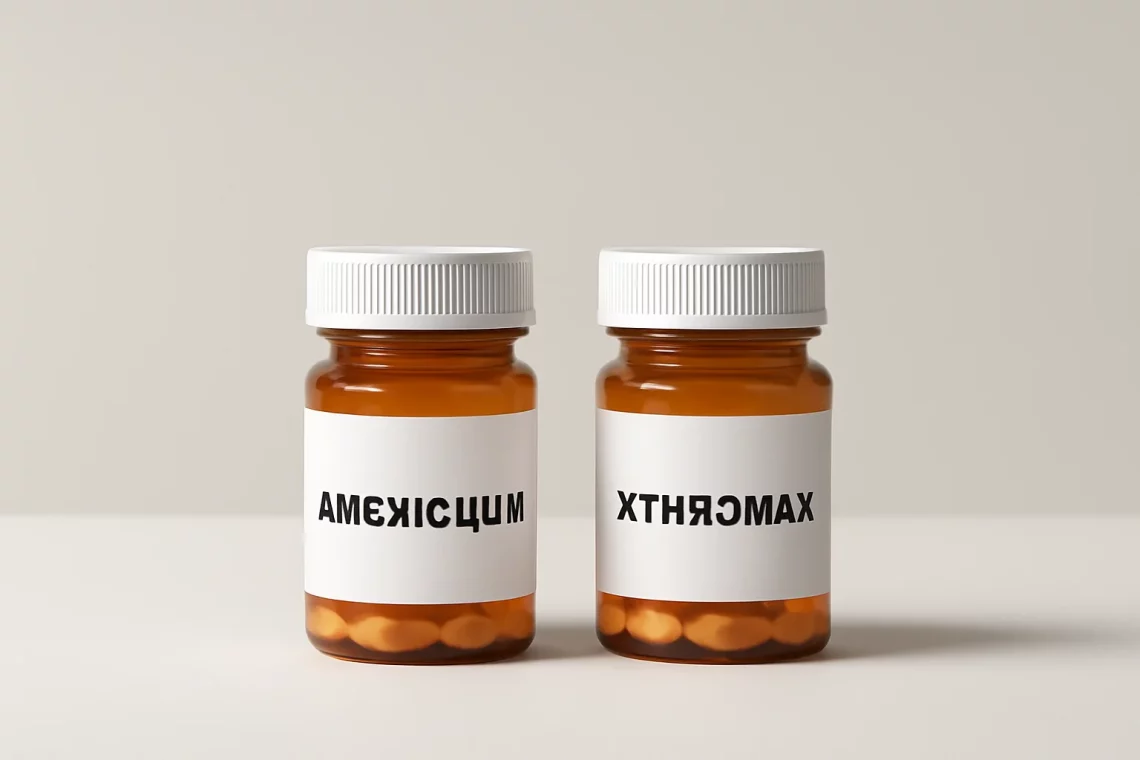-
Ibuprofen vs Advil: Understanding the Differences and Uses
Ibuprofen and Advil are two terms often encountered in discussions surrounding pain relief and inflammation management. Both are widely used in households and medical settings alike, yet many people may not fully understand the differences and similarities between them. In essence, ibuprofen is the generic name for a common nonsteroidal anti-inflammatory drug (NSAID), while Advil is a popular brand name under which ibuprofen is sold. This distinction raises questions about the efficacy, usage, potential side effects, and overall safety of these medications. As individuals seek effective solutions for pain, fever, and inflammation, it’s crucial to navigate the pharmaceutical landscape carefully. The choice between ibuprofen and Advil may seem trivial; however,…
-
Clindamycin vs Flagyl: A Comprehensive Comparison of Antibiotics
Clindamycin and Flagyl are two commonly prescribed antibiotics used to treat various bacterial infections. Their effectiveness and appropriate use depend on the type of bacteria involved and the specific condition being treated. Clindamycin belongs to the lincosamide class of antibiotics, while Flagyl, or metronidazole, is classified as a nitroimidazole. Both medications play crucial roles in modern medicine, particularly in the management of infections that are resistant to other antibiotics. Understanding the differences and similarities between these two antibiotics can aid healthcare professionals and patients alike in making informed decisions regarding their treatment options. Each medication has unique indications, mechanisms of action, and side effects, which can influence the choice of…
-
Gabapentin or Pregabalin: Which is Right for Your Pain Management?
Gabapentin and pregabalin are two medications widely used in the management of various neurological and pain disorders. Both belong to a class of drugs known as gabapentinoids, which primarily function by modulating the release of certain neurotransmitters in the brain. The therapeutic effects of these medications have made them popular choices for treating conditions such as neuropathic pain, fibromyalgia, and even epilepsy. Despite their similarities, gabapentin and pregabalin have distinct pharmacological profiles, side effects, and indications that can influence a healthcare provider’s choice between the two. In recent years, there has been a growing interest in understanding the nuances between gabapentin and pregabalin. Patients often find themselves faced with choices…
-
Clonazepam vs Diazepam: Which Medication is Right for You?
Clonazepam and diazepam are two medications that fall under the category of benzodiazepines, a class of drugs commonly prescribed for their sedative, anxiolytic, and muscle-relaxant properties. These medications have been widely used in the treatment of various conditions, including anxiety disorders, panic attacks, and seizures. Despite their similarities, clonazepam and diazepam have distinct differences in their pharmacological profiles, indications, and side effects, which can influence the choice of one over the other in clinical practice. Understanding these differences is essential for patients and healthcare professionals alike, as it can guide effective treatment strategies tailored to individual needs. Both medications work by enhancing the effects of a neurotransmitter called gamma-aminobutyric acid…
-
Losartan vs Valsartan: Choosing the Right Medication for Hypertension
Losartan and Valsartan are two commonly prescribed medications that belong to a class of drugs known as angiotensin receptor blockers (ARBs). These medications are primarily used to manage hypertension and heart failure, providing significant benefits for those affected by these conditions. With rising rates of cardiovascular diseases globally, understanding the role and differences between these medications is increasingly important for patients and healthcare providers alike. Both Losartan and Valsartan function by blocking the action of a hormone called angiotensin II, which causes blood vessels to constrict. This action leads to lower blood pressure and reduced workload on the heart. Despite their similar mechanisms, there are nuances in their pharmacological profiles,…
-
Amoxicillin vs Zithromax: Key Differences and Uses Explained
The world of antibiotics is vast and complex, with various medications designed to treat different types of bacterial infections. Among the most frequently prescribed antibiotics are Amoxicillin and Zithromax, both of which are widely used in the medical field. While they share the common goal of combating bacterial infections, their mechanisms of action, spectrum of activity, side effects, and specific applications set them apart. Understanding the differences between these two medications is crucial for both healthcare providers and patients. Each antibiotic has its unique characteristics that make it more suitable for certain infections. The choice between Amoxicillin and Zithromax can significantly influence treatment outcomes, highlighting the importance of appropriate antibiotic…
-
Lexapro vs Effexor XR: Choosing the Right Antidepressant for You
Lexapro and Effexor XR are two commonly prescribed medications for the treatment of mood disorders, particularly depression and anxiety. As mental health awareness continues to grow, so does the interest in understanding the various options available for managing these conditions. These medications belong to different classes of antidepressants, each with its unique mechanisms of action, side effects, and benefits. In today’s fast-paced world, many individuals seek effective treatment options to help them cope with the challenges of daily life. The choice between Lexapro and Effexor XR can significantly impact a patient’s journey toward mental wellness. Understanding the differences and similarities between these two medications is essential for making informed decisions…
-
Loratadine vs Diphenhydramine: Which Antihistamine Is Right for You?
Loratadine and diphenhydramine are two commonly used antihistamines that play a crucial role in managing allergy symptoms. They are both effective in alleviating conditions such as hay fever, allergic rhinitis, and other allergic reactions. While they serve a similar purpose, the way they work and their side effects can vary significantly, making it essential for users to understand the differences between them. Antihistamines function by blocking the action of histamine, a substance in the body that causes allergic symptoms. However, there are two primary categories of antihistamines: first-generation and second-generation. Diphenhydramine falls into the first-generation category, while loratadine is classified as a second-generation antihistamine. This distinction is essential for users,…
-
Lexapro vs Wellbutrin: Choosing the Right Antidepressant for You
The landscape of mental health medications is broad and diverse, with various options available to help individuals manage their conditions. Among these, Lexapro and Wellbutrin stand out as popular choices for treating depression and anxiety. While both medications aim to alleviate symptoms of mood disorders, they belong to different classes of antidepressants and work through distinct mechanisms in the brain. Understanding the nuances of these medications can empower patients and their healthcare providers to make informed decisions about treatment options. As mental health continues to gain recognition, it is essential to explore the efficacy, side effects, and overall patient experience associated with different medications. Each person’s journey with mental health…
-
Doxycycline vs Levaquin: Key Differences and Uses Explained
Doxycycline and Levaquin are two antibiotics commonly prescribed to treat a variety of bacterial infections. Both medications have distinct mechanisms of action, efficacy profiles, and side effects, which can significantly influence their use in clinical settings. Understanding the differences between these two drugs is vital for healthcare professionals and patients alike when making informed decisions about treatment options. The choice between Doxycycline and Levaquin may depend on various factors, including the type of infection being treated, patient medical history, and potential drug interactions. Doxycycline, a tetracycline antibiotic, is effective against a broad spectrum of bacteria and is often utilized for infections such as acne, respiratory tract infections, and certain sexually…







































